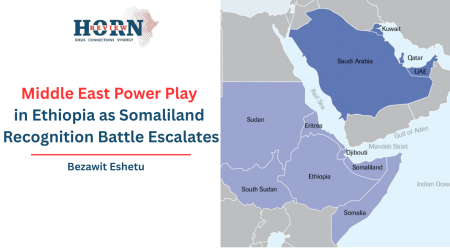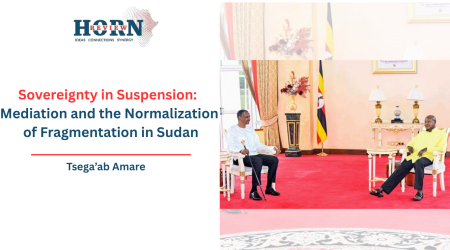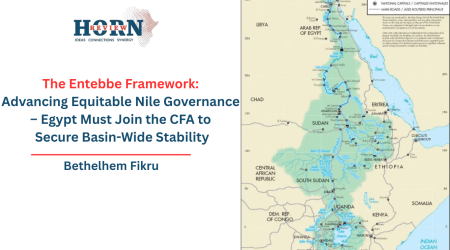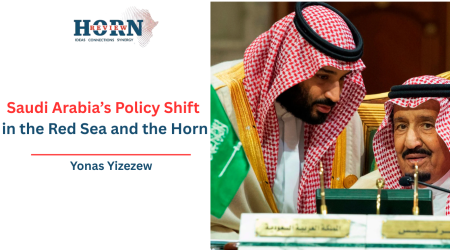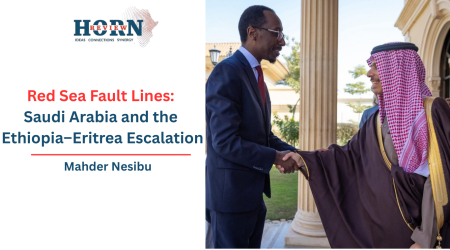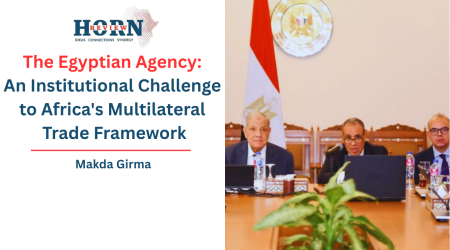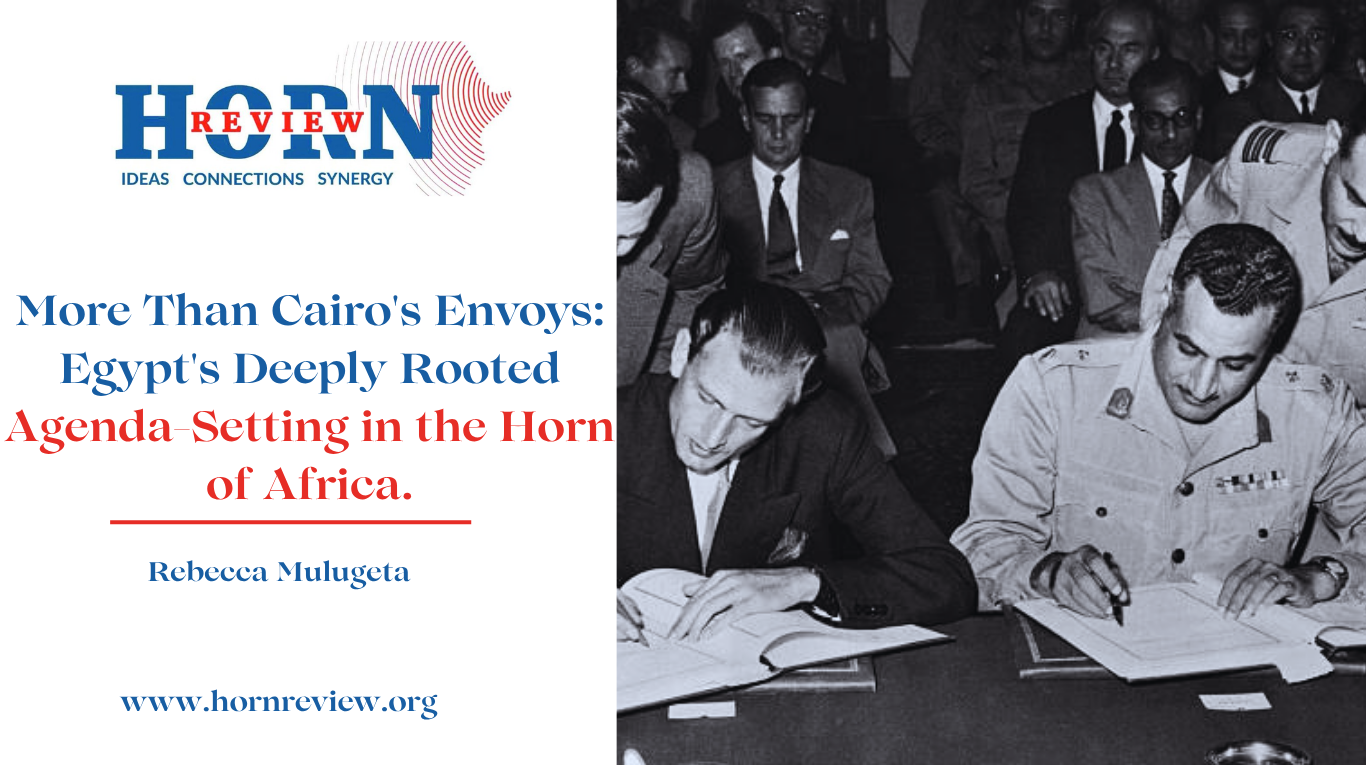
5
Nov
More Than Cairo’s Envoys: Egypt’s Deeply Rooted Agenda-Setting in the Horn of Africa.
It goes without saying that the towering influence of Egypt within the Arab world, Africa, and even in the eyes of Western powers today could not be understood without a deep dive into the geopolitical legacies which the Ottoman Empire and British colonialism left. The imperial powers designed a complex political, economic, and strategic environment that gave Egypt certain advantages and privileges denied to many of its neighbors, including Ethiopia. That historical vantage explains why Egypt so often leads regional agendas and why its diplomatic behavior sometimes suppresses or disregards others’ interests, including those of Ethiopia.
It also shows how the geopolitical machinations of empires centuries ago continue to shape contemporary disputes over vital resources like the Nile and control over the Red Sea. The story begins with Ottoman Egypt. Conquered by the Ottomans in 1517, Egypt became an administrative province of an empire that stretched across large parts of the Middle East, North Africa, and southeastern Europe. Unlike many Ottoman provinces, Egypt had a degree of autonomy under its governors, who nurtured a specific political and administrative culture. Crucially, local rulers like Muhammad Ali Pasha (1805-1848) came out of this background to establish a strong dynasty operating with significant independence, modernizing the army and economy with ambitions equal to those of independent states.
This hybrid Ottoman-Egyptian system endowed Egypt with a tradition of centralized governance and administrative sophistication second to none within its immediate African and Arab surroundings, most notably including the landlocked state of Ethiopia, for example, without similar imperial histories or strategic access to international maritime routes. Ottoman sovereignty over Egypt, however, was dealt a severe blow by the growing European interests in the 19th century. To the British Empire, obsessed with securing routes to its cherished colony in India, Egypt represented an indispensable gatekeeper to the East due to, most especially, the Suez Canal, completed in 1869 as a French-led project connecting the Mediterranean and Red Seas.
This canal was a monumental geopolitical asset crucial for faster naval and commercial access. When Egypt’s ruler, Isma’il Pasha, faltered financially and sold Egypt’s shares in the canal company to Britain in 1875, he inadvertently handed the British a strategic foothold that would soon lead to deeper political control. The motivations of Britain behind intervening in Egyptian affairs were clear: securing imperial trade routes and protecting investments. This is what lay behind the 1882 British military occupation of Egypt following nationalist revolts against foreign influence. Despite Egypt remaining officially an Ottoman province, Britain created in it a “veiled protectorate,” controlling its government, finances, and military behind the scenes.
It was only during World War I, when the Ottoman Empire sided against Britain, that the British declared a formal protectorate over Egypt, severing its ties to Ottoman rule.The Ottoman and British imperial legacy thus positioned Egypt as both a colonial and semi-autonomous hub with privileged access to global trade networks, unparalleled military capacity in the region, and highly developed state institutions. These factors combined provided Egypt with a foundation for regional dominance that other states could hardly match.
British colonial rule further entrenched this imbalance. Although Egypt was never annexed as a colony, British occupation lasted until 1956, embracing the period when real power was exercised through British officials who oversaw Egypt’s finances, army, and foreign relations. The British placed priority on Egypt’s security and political stability because it was the linchpin in their imperial communications, most specifically the Suez Canal, which held the key to the survival of the empire. Western powers, as a whole, heavily invested in the cotton economy and military of Egypt, modernizing infrastructure according to the needs of imperialism rather than regional integration or equitable development.
British colonialism and the Ottoman-British era in Egypt were conjunctions that excluded Ethiopia from regional decision-making and denied it control over resources such as the Nile waters. It was Egypt, through its colonial backing, that molded all treaties and regional agreements, like the 1929 and 1959 Nile water allocations, made without Ethiopia’s consent, which froze its developmental potential for several decades. On the contrary, Egypt enjoyed international recognition of these agreements, bolstered by steady statecraft in both colonial and post-colonial times.These treaties were diplomatic victories for Egypt but represent injustices that constrained Ethiopia’s sovereign rights.
The geopolitical designs of the British aimed at developing reliable proxy states in regions very crucial to their imperial logistics. Egypt was groomed as the number one regional partner, trained both militarily and administratively for maintaining order and protecting imperial interests. This partnership translated into Egypt’s privileged position in formulating and leading regional institutions like the Arab League. Most often, Egypt’s hegemony in such structures means that the voices of non-Arab or upstream Nile countries, like Ethiopia, are either silenced or marginalized.
Egypt’s advantage in diplomatic evolution, therefore, is not organic leadership but one consolidated from imperial legacies of power projection, supported by Western political and military might. The British strategic use of Egypt as a regional gatekeeper extended to suppress or sideline Ethiopian ambitions. For British imperialists, Ethiopia’s independent empire was a geopolitical nuisance challenging their interests in North Africa and Arabia. By backing Egypt’s claims on the Nile and controlling regional diplomacy through Egypt, the British and their imperial successors ensured Ethiopia’s relative isolation in the politics of water, excluding it from the benefits accruing from the Nile that courses through its lands.
This entrenched position was not dismantled by either the fall of the Ottoman Empire or the British departure from Egypt. Post-colonial leaders such as Gamal Abdel Nasser used this inherited influence, prompted by Egypt’s military modernization and political centrality, to assert nationalist and pan-Arab projects that continued to dominate regional geopolitics. Leadership in the Non-Aligned Movement and a role in anti-colonial struggles have given Egypt moral and diplomatic cover and secured a global platform. Under this legacy, Egypt’s strategic imperative remained one of preserving historic hegemony over the waters of the Nile and regional alliances, often at Ethiopia’s expense.
Today, Ethiopia faces the challenge of challenging these deep-rooted historical architectures of influence. Egypt’s colonial-backed institutional and military advantages, combined with its diplomatic ties to Western powers network, extend a geopolitical order skewed against the sovereign rights of Ethiopia over the Nile and now the Red Sea. Understanding the roles of Ottoman administrative continuity, British imperial protectorates, and their geopolitical designs having the Suez canals that is the major trade route for the world trade exchange illuminates why Egypt’s influence appears so entrenched and why it acts to maintain regional dominance when Ethiopian national interests and developmental aspirations are at stake. In the final analysis, Egypt’s current regional dominance and its often exclusionary diplomacy toward Ethiopia are legacies of imperial geopolitics shaped by both the Ottomans and British.
These empires fashioned a set of institutions, treaties, and networks of power that privileged Egypt as a gatekeeper of regional waters and trade routes while diminishing Ethiopia’s voice and rights over its own resources. Moving forward, Ethiopian strategies must grapple with this layered imperial legacy in their effort to rewrite the diplomatic narrative and regional power structures in more equitable directions, cognizant that Egypt’s hegemonic behavior today is rooted in complex historical forces and not solely in contemporary politics. This understanding provides the historical clarity and international legitimacy for Ethiopia to assume a rightful place in the affairs of the Nile Basin and wider region.
By Rebecca Mulugeta, Researcher, Horn Review

